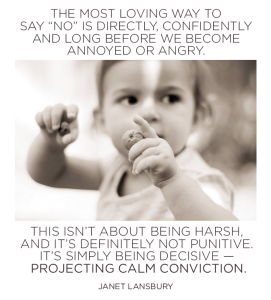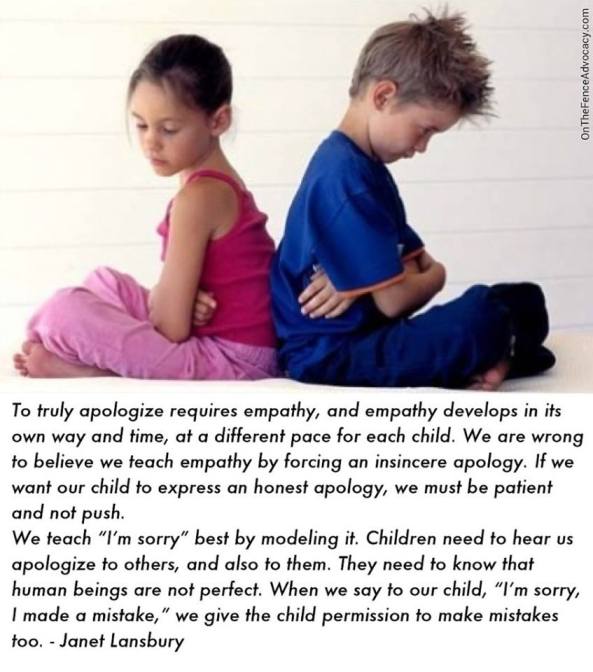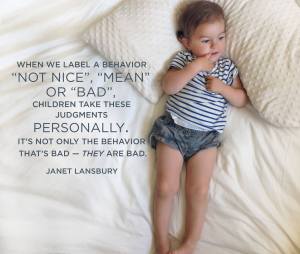1. Discipline
How do we discipline our kids? There are plenty of violent prisoners in penitentiaries who were disciplined as children with spankings, beatings, screaming and neglect. Though I had my children take “time out” sometimes, now I question the popular use of that as a disciplinary technique because it links quiet time alone with punishment.
When children, even toddlers, are given explanations for rules, allowed to voice an opinion, and even to disagree, they become more skilled at exercising their power, their social “muscles,” when they relate to others and learn to cope with problems by reasoning out the right responses. It may take more time to talk than to hit, but, in the long run, the lessons you are teaching will be more far-reaching and will develop a broader range of social skills in your child. Use reasoning to help your child understand the concepts of restitution and making amends, to understand that apologies don’t automatically excuse them from out-of-control behavior and that words can hurt as much as punches. Many research studies have concluded that the use of reasoning and discussion as disciplinary tools is one of the most effective ways to foster a child’s positive moral development.
One inventive mother went to a nature store and purchased several small rocks with words carved on them such as: sisters, brothers, family, love, kindness, peace, truth, forgive, gentle, cooperation, and so on. When one of her children misbehaved, she chose one of the rocks and gave it to the child, explaining the word and what it meant in this particular situation. She repeated the word several times, having her child repeat it back and explained its definition. The child was the led to his room or a “safe place,” and asked to think about what that word meant to him for fifteen minutes. Then his mother would retrieve him and they would discuss the word. In this way, the child was not punished, but an “intervention” took place, which allowed the child to learn values and connect those values to his behavior.
2. Learned Powerlessness
There are many ways we unknowingly teach our children to be helpless rather than empowered. Helplessness is taught by:
- Doing things for children ins teach of teaching them, in steps, how to do it themselves.
- Explaining poor performance in school in terms of intelligence or inability, instead of effort or motivation.
- Explaining the cause of difficulty as internal (“You’re not good at that”) rather than external (“You can try harder next time and do better”).
Girls are socialized to be more vulnerable to criticism and tend to interpret it as permanent and pervasive rather than temporary and external. The are more likely to explain difficulty as their fault, due to their character defects, whereas boys are socialized to attribute difficulty more to outside circumstances or temporary lapses. So with your girls be especially conscious of explaining, when disciplining, that when they’ve done something wrong it does not mean there is something wrong with them. Explain that wrong behavior is something that is temporary, related only to the subject at hand and is something that can be changed. Remember also that we all need to feel we have some control over a situation and/or our feelings about it in order to develop resilience and resistance to adversity. Helplessness robs us of resilience.
3. Reasoning
Tai Chi’s “listening power” can be used to reason with your kids at any age. In this practice, you stay with them and feed back to them in your own words what you hear them saying about something they have just done, felt, or experienced, from their point of view. Stay with them long enough to be able to act like a mirror, helping them reason their way to the conclusion that delineates right from wrong. You can help them “be their own boss,” and evaluate their own feelings and actions. You can help them see how consequences are tied to actions, and how, if they have done something wrong, they can make amends with dignity. At first you may sometimes have to take the role of teacher and guide them firmly through this process. When you do this, try to refrain from filling in silent spaces with lectures. When your feedback is wrong, they will let you know. Be patient and ask them with sincerity to explain again what they mean.
Dr. Suzette Hadin Elgin says that “Talking to a child, especially after the age of five or six, is essentially the same as talking to an adult you outrank.” They understand much more than they are given credit for. She also says, “You have to let a child choose and introduce the conversational topic. You must support that topic every few sentences. And, hardest of all, you have to listen while the child talks, with your heart, your head, and with full courteous attention.”
When you ask your child to do a chore, be sure you include all the information he needs. For example, instead of saying, “Jack, take out the trash,” you could say, “Jack, please take out the trash right now because the garbage truck is coming at noon.” Tone is important. Try as hard as you can to use a respectful, relaxed tone that assumes your child wants to help. Along with your tone, smiling eye contact or a touch can help communicate your positive intention. If you mess u-p, apologize. Say, “I didn’t mean to sound harsh” (angry, impatient, and so on). “I’m kind of stressed out right now and could really use the help.” Be sure to thank the child when the task has been completed. At dinnertime, you could say, with an eye-contact smile, “Jack, it was a great help to have the garbage taken out on time. Thanks a lot.”
Try to be alert to whether your child is hearing what you are saying the way you want her to. If you feel a negative reaction, you can say, “I’m not sure I said that right. Let me try again.” Or, “Did I say that in a way that didn’t feel good to you?” Again, communicating respectfully with your kids help them learn respectful communication and empowers them to take responsibility for themselves and the way they communicate. You are laying a solid foundation for their future relationships, so it is definitely worth the time.
© 2015 Vimala McClure




